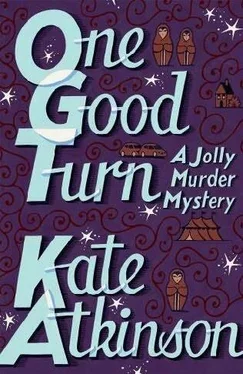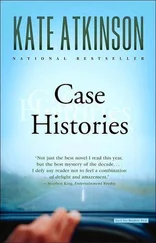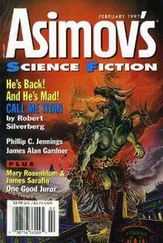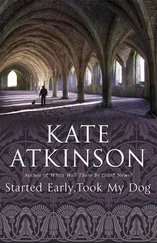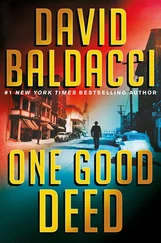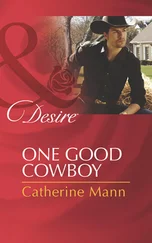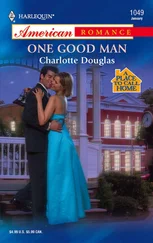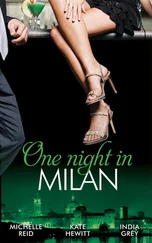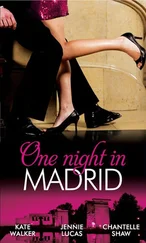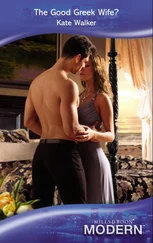Kate Atkinson - One Good Turn
Здесь есть возможность читать онлайн «Kate Atkinson - One Good Turn» весь текст электронной книги совершенно бесплатно (целиком полную версию без сокращений). В некоторых случаях можно слушать аудио, скачать через торрент в формате fb2 и присутствует краткое содержание. Жанр: Триллер, на английском языке. Описание произведения, (предисловие) а так же отзывы посетителей доступны на портале библиотеки ЛибКат.
- Название:One Good Turn
- Автор:
- Жанр:
- Год:неизвестен
- ISBN:нет данных
- Рейтинг книги:4 / 5. Голосов: 2
-
Избранное:Добавить в избранное
- Отзывы:
-
Ваша оценка:
- 80
- 1
- 2
- 3
- 4
- 5
One Good Turn: краткое содержание, описание и аннотация
Предлагаем к чтению аннотацию, описание, краткое содержание или предисловие (зависит от того, что написал сам автор книги «One Good Turn»). Если вы не нашли необходимую информацию о книге — напишите в комментариях, мы постараемся отыскать её.
One Good Turn — читать онлайн бесплатно полную книгу (весь текст) целиком
Ниже представлен текст книги, разбитый по страницам. Система сохранения места последней прочитанной страницы, позволяет с удобством читать онлайн бесплатно книгу «One Good Turn», без необходимости каждый раз заново искать на чём Вы остановились. Поставьте закладку, и сможете в любой момент перейти на страницу, на которой закончили чтение.
Интервал:
Закладка:
He had a set of Russian dolls, matryoshka , the expensive kind. The tourist shops in Prague were full of Russian dolls these days. The writer’s dolls were lined up on the windowsill, she dusted them every week, sometimes she put them inside one another, playing with them as she had with her own set when she was a child. She used to think they were eating one another. Her ma-tryoshka had been cheap, crudely painted in primary colors, but the dolls that belonged to the writer were beautiful, painted by a real artist with scenes from Pushkin, so many artists in Russia with no jobs now, painting boxes and dolls and eggs, anything for tourists. The writer had a fifteen-doll set! How she would have loved that when she was a girl. Now, of course, she had put away childish things. She wondered if the writer was gay. A lot of gay men in Edinburgh.
There was a shelf of his books in his study, a lot of them in for-eign languages, even in Czech! She had glanced through them, they were about a girl named Nina Riley who was a private de-tective. Put the gun down, Lord Hunterston! I know what happened out on the grouse shoot. Davy’s death was no accident . Shite, as her Scottish boyfriend would have said. They referred to the writer as “Mr. Canning,” but that was not the name on his books, on the books he was “Alex Blake.”
All nice as it was every time. Scented roses from the garden in a bowl on a table in the hall. He always left ten pounds extra, tucked under the bowl, a generous man. Must be very rich. No ten-pound note today, not like him. The dining room unused, as usual. She opened the door to the living room. The curtains were closed, which they never were. It felt gloomy, as if there were a fog in the room. Even in the half-light she could tell that something bad had happened. She picked her way across the carpet, and glass crunched underfoot as if a bomb had gone off. She opened the curtains and sunlight poured in, illuminating the mess-the mirror above the fireplace, all the ornaments, even the pretty glass shades in the antique light fitting, all smashed to splinters and shards. A coffee table turned over, a table lamp lying on the floor, its yellow silk shade bent and broken. Everything upside down, as if elephants had passed through the room. Really clumsy elephants. The writer’s matryoshka dolls were scattered everywhere, little skittles knocked flying. She picked one up without thinking and put it in the pocket of her jacket, feeling the smooth, round, satisfying shape of it.
Sophia had a funny feeling in her stomach, like when something very exciting was going to happen, something that had never happened before. Like the time she watched a huge block of flats being demolished. Boom! And a great cloud of thick gray dust, like a volcano erupting, like the Twin Towers coming down, only it was before the Twin Towers.
Then she cried out, “Oh, God, oh my God,” in her own lan-guage. She made the sign of the cross even though she wasn’t religious and said, “Oh my God,”again. They seemed to be the only words she could remember. The sight of the man on the floor had temporarily eradicated the entire database of Sophia’s vocabulary, English and Czech.
She was a scientist, really, not a cleaner, she reminded herself, she should be able to observe dispassionately, objectively. She forced herself to move closer. The man, it must be the writer, was lying on the floor as if he had toppled over backward while at prayer. It looked like an uncomfortable position, but he probably didn’t care too much anymore. His head all caved in, an eye popped out. Brain everywhere like Scottish porridge. Blood. A lot of blood, soaked into the red carpet so she hadn’t seen it at first. Blood on the red-painted walls, blood on the red velvet sofas. It was like a room that had been waiting for a murder, waiting to ab-sorb it into its walls like a sponge.
She was getting used to looking at him now.Words were coming back as well-English words-she realized she could shout “Help!” or “Murder!” but now that she’d got over the shock, that seemed a little bit stupid, so she walked quietly back through the house and out the front door and into the street, where she found the House-keeper still unloading plastic buckets and mops from the back of the pink van and informed her that the writer’s house wasn’t going to be cleaned anytime today.
20
“Iheard you killed a dog. You look like shit. Want to grab a coffee?”
Louise Monroe. Louise Monroe grinning at him and pointing across the road to the Royal Museum opposite the Sheriff Court.
“Fraternizing with the enemy?”
“They’ve got a good café in there,” she said. She scrubbed up nicely-black suit, white shirt, heels. Yesterday she had been in jeans and a T-shirt, a suede jacket. He liked her best in jeans, but the suit was nice. She had good ankles, “turned on a lathe,” his brother would have said. Jackson was a bit of an ankle man. He liked all the other bits that went into the making of a woman, but he particularly appreciated a good pair of ankles. It was the bad Jackson, obviously, who was thinking about Louise Monroe’s an-kles, the evil doppelg㭧er who lay in ambush within his brain. Good Jackson, Bad Jackson. The pair of them seemed to be having quite a tussle these days. Jackson didn’t like to think what would happen if Bad Jackson won. Had Dr. Jekyll won over Mr. Hyde? Which one was good and which one was bad? He had no idea, he’d never read the book, only seen that Mary Reilly movie, half of it anyway, on video-Josie’s choice-before falling into a postpizza sleep on the sofa.
“I didn’t kill the dog,” Jackson said. “It just died. Dogs do die of natural causes, despite what everyone thinks. I take it you haven’t found her, then? The dead girl?”
“No, sorry.”
“Not yet” would have been a better answer. She said “sorry” as if looking for the dead girl had been a personal favor to him rather than a police case. Jackson suddenly caught sight of Terence Smith leaving the Sheriff Court, a phone glued to his ear. “Hey, you,” Jackson shouted, starting after him. Louise Monroe caught his sleeve and held him back, saying, “Easy, tiger, you don’t want to end up straight back in court.” Terence Smith gave him a two-finger salute and stepped into a taxi.
“Lying bastard,” Jackson muttered.
“That’s what they all say.”
“So you pleaded guilty even though you were innocent?” Louise Monroe mused over a latte while Jackson downed a triple espresso like medicine. “You must be a Catholic.”
“My mother was Irish,” Jackson said. “She was very religious, I was a disappointment to her.” “I’m a Scottish Catholic, that’s a double whammy-all the same crap but a chip welded on the shoulder as well.” “And were you a disappointment to your mother?” Jackson asked.
“No. She was a disappointment to me.”
“It just seemed easier to plead guilty.”
“And that makes perfect sense where you come from, Mr. Brodie, in Topsy-Turvy Land?”
Mr. Brodie . That’s how Julia used to address him, in the early days, making his surname suggestive and intimate as if he were a character in a Regency romance. Now she said “Jackson” sharply, like someone who knew him too well.
“I just thought it would be quicker, rather than going to trial and having to come back, get a solicitor, all that rigmarole. I had no witnesses, the guy was injured, and I never mentioned my own injuries when I was charged.” He held out his hand for her to see, deciding against lifting his shirt and displaying his other purple trophies in the genteel environment of the museum. “My sword hand,” he said ruefully.
“He stamped on your hand?” she asked. “When you were on the ground? And you didn’t plead self-defense? You’re an idiot.”
Читать дальшеИнтервал:
Закладка:
Похожие книги на «One Good Turn»
Представляем Вашему вниманию похожие книги на «One Good Turn» списком для выбора. Мы отобрали схожую по названию и смыслу литературу в надежде предоставить читателям больше вариантов отыскать новые, интересные, ещё непрочитанные произведения.
Обсуждение, отзывы о книге «One Good Turn» и просто собственные мнения читателей. Оставьте ваши комментарии, напишите, что Вы думаете о произведении, его смысле или главных героях. Укажите что конкретно понравилось, а что нет, и почему Вы так считаете.
